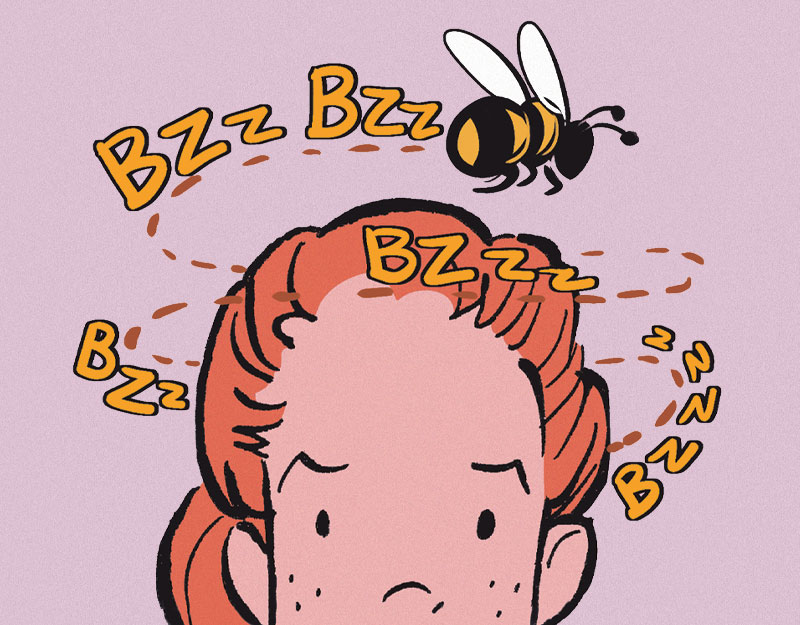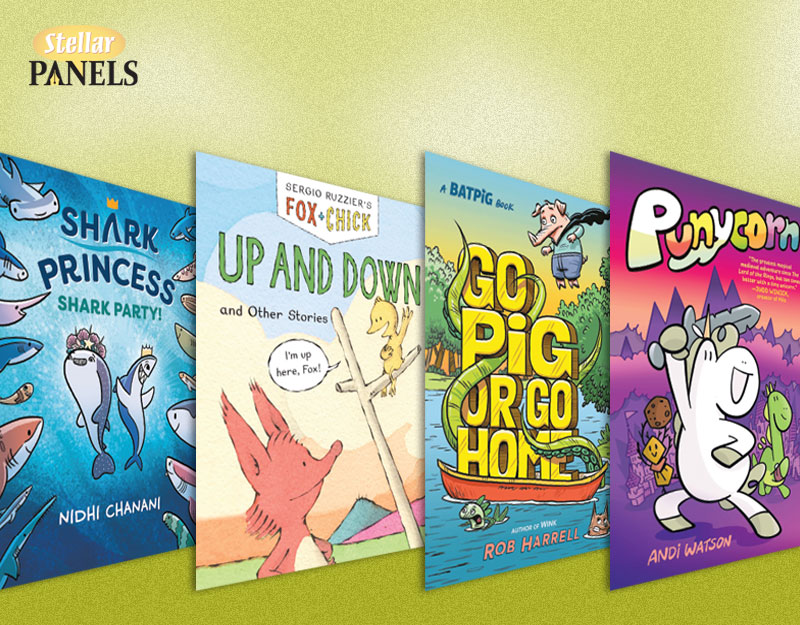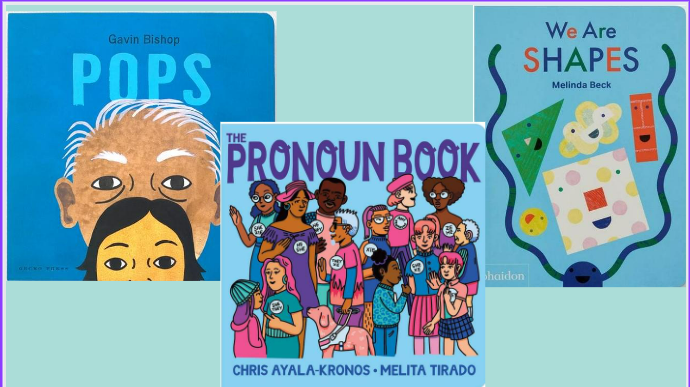#MHYALit: What is Neurodiversity and How Did It Save My Life? a guest post by Olivia James
 When I was 18, I stopped eating. There are approximately a million different reasons that I made that choice, and there is no way to sum them all up, but at the heart of all the poor coping skills that came to a head at 18 was the simple reality that my brain is different from other brains.
When I was 18, I stopped eating. There are approximately a million different reasons that I made that choice, and there is no way to sum them all up, but at the heart of all the poor coping skills that came to a head at 18 was the simple reality that my brain is different from other brains.
It’s a fact that human brains contain variations: some people fall into anxiety more quickly, while others tend towards joy. Some people find solace in being around others, while for the introverts among us, socializing is exhausting. When I say that my brain is different from other brains, I don’t mean it as a judgment. It is simply true. Unfortunately, it’s a fact that for many, many years I believed was a problem. It makes sense that I believed that: mental illness and neurodiversity are generally seen as negatives in American society. They’re shameful, dangerous, and awful. We tell certain stories about mental illness that say it’s a nasty thing that happens to you, but if you’re lucky you can survive it and it won’t be part of you anymore.
ADVERTISEMENT
ADVERTISEMENT
The narrative goes like this: I was very unhappy. Something bad happened in my life, or I found myself struggling with school or bullies, or I hit puberty, and I just couldn’t deal anymore. I hurt myself/starved myself/wanted to die. Finally it got so bad that I knew something had to change, and I asked someone for help. I went to therapy/got medication/talked to a trusted adult, and learned that life was worth it/I could be happy/how to manage my emotions. Now I still struggle with my mental health during hard times, but I “beat” my mental illness, and I feel stronger than ever. I’m not depressed/anxious/starving anymore, and now I’m a better/different person.
That’s not my story. When I went to therapy, it was because my mother had threatened to withhold my college tuition money until I did. I lied and I evaded my therapist for years. I had no desire to “get better” or to change. As an aside, I do not recommend this method of therapy at all. It’s a waste of everyone’s time, it’s deeply unpleasant, and it does not actually provide positive results. Therapy works considerably better when you actually are willing to work with your therapist.
But I was unwilling, because the narrative that I had about mental illness was one in which my mental illness was an essential part of myself, and I had to give up that essential part of myself in order to get “better.” I had to behave or think or feel differently, and the therapist would make me do it. More than anything, I did not want to change. I did not want to give up my deeply held beliefs about meaning and purpose. My eating disorder made me feel safe. My depression seemed to be the most accurate response to a world that was really screwed up. My anxiety seemed like it was the only thing that kept me functional. If I wasn’t anxious, what motivation would I have to accomplish my goals? Who would I be if I wasn’t all these things that had been a part of my life for years?
Sometimes it is easier to die in the grip of something familiar than to live in the unknown. I felt safe. I was dying, but I felt safe. Maybe I wanted to die. I probably wanted to die. Maybe I should’ve gotten the hint when I chose “Wanting to Die” as the poem I performed in my senior year speech competitions.
It took years before I finally started to properly listen to some of the things that my endlessly patient therapist was saying to me. I don’t mean to be discouraging to those seeking treatment, but it’s also important to be realistic: therapy takes a lot of time and a lot of work before you see results. And here is where my story diverges most thoroughly from the normal stories that I hear: I did not learn that I needed to “fight back”, I did not “hit rock bottom”, I did not have a moment in which it all became clear. Rather, I slowly began to realize that there was nothing wrong with me except that nobody had given me any tools to deal with my life.
What was helpful to me (and be forewarned, that this is what worked for ME. Other people find completely different things helpful) was to embrace those parts of myself that were causing me all this anxiety and stress. This might sound counterintuitive, but it’s actually a pretty basic tenet of neurodiversity. Neurodiversity is the idea that differences in brains aren’t just a fact, but that those differences are in fact an important part of how the human species thrives. Different brains bring different strengths and weaknesses. So embracing my brain meant recognizing that yes, there are some elements of my brain that are particularly challenging in unique ways, but there are also parts of my brain that (excuse my French) kick ass. What was causing me lots of problems was the fact that society is set up for brains that aren’t like mine. I had to readjust my life to work for MY brain. Some people think that this is sad, or that it means I “can’t” do a lot of things. I don’t see it that way. I prefer to see it as “not doing things that I hate doing.”
I don’t see anxiety as limiting me, I see a society that expects me to do things that are anxiety provoking as limiting. I’m really quite happy to socialize with games and in small groups, not go to parties, not go to large and crowded events, not talk to strangers, not talk on the phone. Sometimes I can’t do things that others consider “basic functioning”, like being able to cook and feed myself. That’s ok: I can always ask for help. Recognizing that I need these accommodations is what keeps me from overtaxing my abilities and falling apart.
ADVERTISEMENT
ADVERTISEMENT
Choosing to do things that work (and not to do things that don’t work for you) for you isn’t sad or wrong. It’s just different, and the realization that I could just stop doing things I hated and start doing things differently was pretty mind blowing to me. It also meant that I could tap into some of my talents: once I wrote a 50,000 word novel in two weeks. My focus is impeccable and my drive is pretty impressive as well. But instead of blowing all that focus getting through a two minute phone call that I hate, now I just text instead. By limiting the things that are uncomfortable and painful to me, I open up so many other possibilities.
I know that for many people (particularly artists, writers, and other creative types), talking positively about mental illness is dangerous territory. There’s a history of equating creativity with depression. Neurodiversity does not mean leaving people with mental illnesses to fend for themselves, nor does it mean ignoring the fact that some kinds of brains come with negatives that are serious and dangerous. I embrace my brain, which has depressive and anxious traits. I do not embrace the depression and the anxiety. I do my best to find the underlying traits (perfectionism, conscientiousness, thoughtfulness) that can be brought into balance and made useful. I think there’s a huge difference between saying that art, depth, or thoughtfulness come from mental illness and saying that mental illness is not ALL awful, or that my brain is unique and there are some elements of that uniqueness that I appreciate or that are positive.
You don’t have to keep hating yourself. There is nothing WRONG with you. You might have some work to do to understand your own tendencies, needs, and wants, and to create a life that relies on your strengths and compensates for your weaknesses. But it’s possible, and I really cannot articulate the relief that comes with realizing that it doesn’t hurt so much anymore. You have all the pieces to build something glorious. You just have to figure out how they go together.
Meet Olivia James
 Olivia is a marketer by day and a writer by basically every other time. If you met her you’d probably think “well there’s a big ol’ nerd” and you’d be right. You can often find her playing Dungeons and Dragons, cuddling with her cats, or ranting at anyone who will listen about social justice. Olivia has a weird obsession with octopuses and Latin, which is why it’s very important to her that it’s octopodes not octopi. In addition to blogging at “We Got So Far To Go” and doing actual work that she gets paid for, Olivia’s current projects are a young adult sci fi novel and her wedding to the coolest nerd partner anyone could ask for.
Olivia is a marketer by day and a writer by basically every other time. If you met her you’d probably think “well there’s a big ol’ nerd” and you’d be right. You can often find her playing Dungeons and Dragons, cuddling with her cats, or ranting at anyone who will listen about social justice. Olivia has a weird obsession with octopuses and Latin, which is why it’s very important to her that it’s octopodes not octopi. In addition to blogging at “We Got So Far To Go” and doing actual work that she gets paid for, Olivia’s current projects are a young adult sci fi novel and her wedding to the coolest nerd partner anyone could ask for.
Filed under: #MHYALit
About Amanda MacGregor
Amanda MacGregor works in an elementary library, loves dogs, and can be found on Twitter @CiteSomething.
ADVERTISEMENT
ADVERTISEMENT
SLJ Blog Network
The Moral Dilemma of THE MONSTER AT THE END OF THIS BOOK
Cover Reveal and Q&A: The One and Only Googoosh with Azadeh Westergaard
Winnie-The-Pooh | Review
Parsing Religion in Public Schools
ADVERTISEMENT







